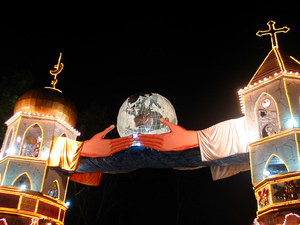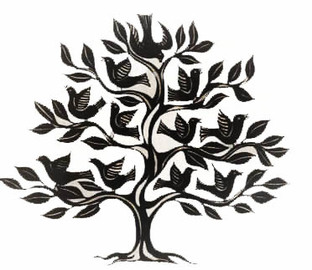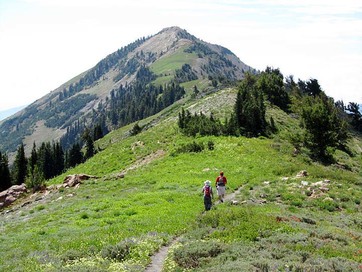
The Vatican in an excellent document 'Mission and Dialogue' suggests four different kinds of dialogue - the dialogue of life where we simply live as good neighbours; the dialogue of social involvement; the dialogue of religious experience and the dialogue of religious experts. I suspect there are even more kinds of dialogue than these but it does show that there's not just one approach. I do understand that interfaith dialogue is not everyone's cup of tea. Often like our speaker at the weekend some people's interest and energy is in educating their own community. This is important for all communities but hopefully it will be an education which will help young people and adults to form an educated and clear identity. But hopefully it will not be a closed identity but one that is open to other faiths and willing to enter into a relationship with them. And I suspect the only way to do this is to understand another faith by engaging with believers. I've often heard people say some things about Christianity that are just wrong, that could easily convey a wrong impression and if this is true of my religion it's certainly true of others. It's important to speak of others with sympathy. As Diana Eck said we all hold the good name of one another as a sacred trust and depend on one another to interpret our religions fairly and accurately. Not to do this could be to spread prejudice and misinformation rather than sows seeds of peace and understanding.
Lord Jonathan Sacks, the former Chief Rabbi, distinguishes between face to face encounter and side by side, preferring side by side himself. He thinks that it's by engaging in a common project that social cohesion is developed and we build a sense of common civic identity and a common home in which we all have an investment. This is certainly true and all faiths need to be involved in civic processes I think. There's much for us to look at together - social justice issues, common values, religious freedom but how do we arrive at the point of common action. Well, through dialogue. Otherwise one religion's agenda can dominate. Often organisations involved in social justice issues are keen to involve other faiths in their projects. Sometimes they're a bit taken aback when others are not as enthusiastic or happy with their own justice projects. So interfaith action is important but if it's truly an interfaith encounter then it's agenda has to have emerged from dialogue and be a truly common problem.
And what about the face to face encounter? Is it really a useless activity? How does one build relationships and friendships without talking and listening to one another? At heart this is what dialogue is about - learning to understand one another's story, standing in one another's shoes, seeing life from a different perspective, establishing relationships that will survive conflict and tensions. In places like Bosnia and Rwanda people lived with one another and indeed went to bed with one another yet turned on one another at times of religious and racial conflict. Working together did not necessarily stop violence. For me interfaith relations has been a transformative experience - changed my view of others, opened me to the wisdom to be found in all faiths and traditions, helped me clarify my own faith but i can't see that this transformation would have taken place without encounter and dialogue. Sometimes it's easier to engage in common action which certainly can develop friendships but can stop the kind of conversation that is challenging and even disturbing. And it's this challenge that leads to transformation, a transformation which hopefully opens us to the mystery of God and promotes peace and unity in out world.





 RSS Feed
RSS Feed
